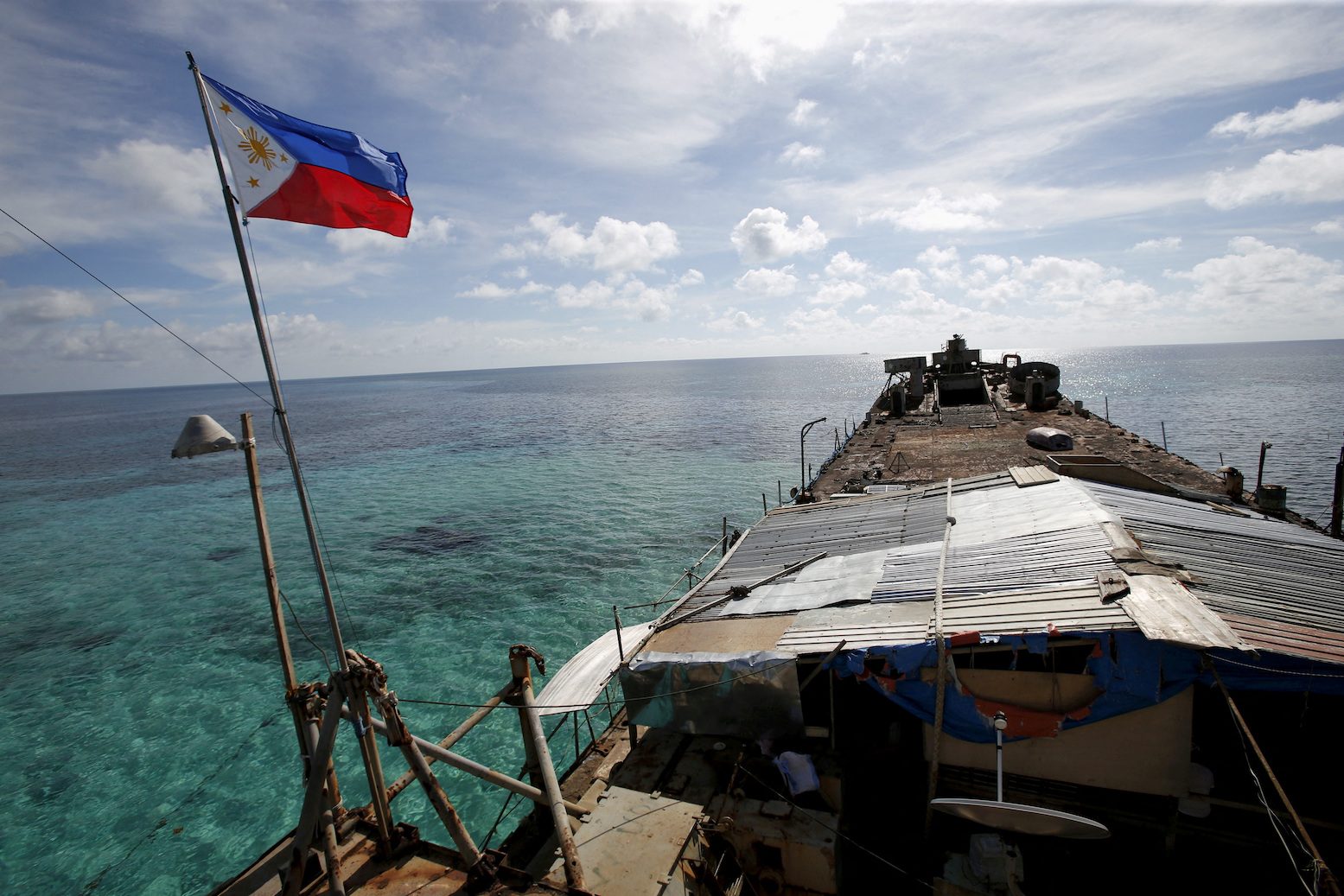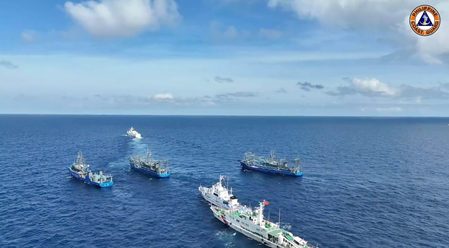SUMMARY
This is AI generated summarization, which may have errors. For context, always refer to the full article.

According to a former top official of the Rodrigo Duterte administration, the original “gentleman’s agreement” with China on Ayungin Shoal was forged midway into the administration of Benigno “Noynoy” Aquino III, or three years before the 2016 Arbitral Ruling that favored the Philippines in the West Philippine Sea dispute.
Former executive secretary Salvador Medialdea divulged this to the House committees on national defense and security, together with the special panel on the West Philippine Sea, during their joint investigation on Tuesday, May 21, into the Chinese embassy’s claims of agreements with the Philippines in relation to Ayungin Shoal.

Among the provisions of the supposed secret deal is that Beijing promised not to harass Manila’s resupply missions to the BRP Sierra Madre as long as no construction materials were brought to Ayungin Shoal.
Medialdea said the commitment to deliver only essential goods to marines posted at the BRP Sierra Madre, which serves as Manila’s military outpost in Ayungin Shoal, was made in 2013. He said then-defense secretary Voltaire Gazmin supposedly made the promise to then-Chinese ambassador Ma Keqing.
The former Palace official shared the information as he denied that any such setup was made during the Duterte presidency. “President Duterte, being a lawyer, knew fully well that it was fool-hardy to enter into an agreement, especially a gentleman’s agreement at that, with the People’s Republic of China in matters involving sovereign rights,” he said.

Medialdea said he learned about Gazmin’s supposed deal by chance, but he could not recall the name of his source. He said that at the time, the Duterte administration had just taken over and the arbitral tribunal in the Hague was due to release its ruling on the Philippines’ historic case against China over the West Philippine Sea (which the Philippines won).
“I got that source from one of the officials before…. I cannot recall. It was an off-the-cuff query when the decision was about to come out,” Medialdea told House lawmakers. He admitted that he was not knowledgeable then about the situation in the West Philippine Sea.
He also cited a column that might have appeared in “GMA” citing the same supposed commitment of Gazmin to China.
If this was the case, why did China, which had a rocky relationship with the Noynoy Aquino administration, only refer to forging a “gentleman’s agreement” with the Duterte administration? The late Noynoy Aquino will always be remembered as the Philippine president who brought China to court.
In April, the spokesperson of the Chinese embassy said in response to questions about China’s supposed deal with Duterte that “in order to manage” the Ayungin Shoal situation, “during the Duterte Administration, China and the Philippines reached a Gentleman’s Agreement, which had effectively helped maintain the overall peace and stability at Ren’ai Jiao.”
During his presidency, Duterte and Xi, whom he called his “close” friend, met multiple times. In stark contrast to his predecessor, Duterte steered the Philippines’ foreign policy towards China to the point that the latter said bilateral relations with the Philippines reached a “golden age.”
During the House hearing, even the Department of Foreign Affairs said they were not aware of the existence of that supposed Aquino-era 2013 commitment to China. None of the officials from other government agencies invited during the first day of the House investigation had a clue on Medialdea’s claimed 2013 “gentleman’s agreement.”
Status quo?
Medialdea told lawmakers that the Duterte administration decided to follow the Aquino administration’s supposed position in handling the situation in the waters, even after the Philippines won its case against China in the West Philippine Sea.
“I think President Duterte was of the position that we respect [the arrangement] first because [the ruling] is a new one,” he said.
The Philippines submitted its case against China to the Permanent Court of Arbitration in January 2013. The Noynoy Aquino administration initiated court proceedings after a standoff between Philippine and Chinese vessels in Panatag Shoal (Scarborough Shoal) in the West Philippine Sea in 2012.
The official ruling – which declared China’s so-called “nine-dash line” invalid – came out on July 12, 2016, 12 days after the Duterte administration took office.
1-RIDER Representative Ramon Gutierrez could not help but express his disappointment over the previous administration’s decision to retain the “status quo.”
“In my opinion, it’s like the [foreign] policy of the previous administration – again, beyond the purview of the inquiry – [had] a shaky foundation in light especially of the 2016 ruling, [we could have enforced] our exclusive sovereign rights over our exclusive economic zone,” he said.
Duterte was heavily criticized for not enforcing the Philippines’ legal victory versus China. Under his administration, Manila redirected its trade and business deals to Beijing and used the ruling as leverage.
But he was also known for belittling the ruling. Duterte merely referred to the landmark case as a “piece of paper.” His policy – or rather, inaction – has led to dangerous consequences years after his presidency. – Rappler.com
Add a comment
How does this make you feel?





![[WATCH] Bamban POGO scandal: There’s a bigger fish than Alice Guo](https://www.rappler.com/tachyon/2024/07/inside-track-tcard-bamban-pogo.jpg?resize=257%2C257&crop=435px%2C0px%2C1080px%2C1080px)
![[Vantage Point] China’s silent invasion of the Philippines](https://www.rappler.com/tachyon/2024/07/TL-china-silent-invasion-july-16-2024.jpg?resize=257%2C257&crop=318px%2C0px%2C720px%2C720px)
There are no comments yet. Add your comment to start the conversation.